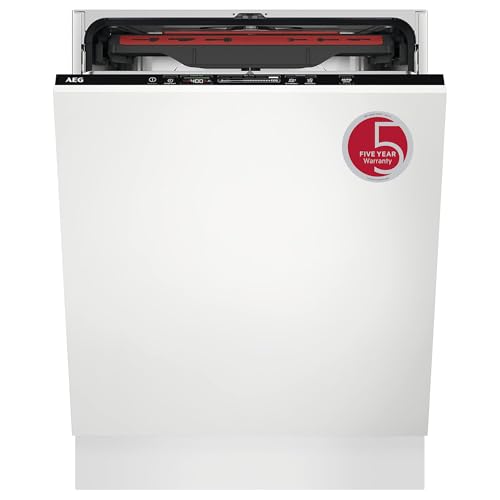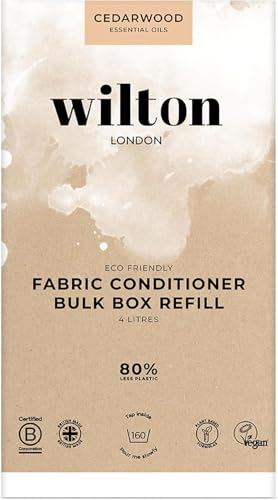




Doing laundry can be a costly task, especially if you have a large family or live in an expensive area. However, there are several simple strategies you can implement to save money while still maintaining clean and fresh clothes. These six easy tips will not only help you cut down on your laundry expenses, but also minimize your environmental impact.
1. Use cold water: One of the easiest ways to save money on laundry is to wash your clothes in cold water. Heating water accounts for a significant portion of your washing machine’s energy usage. By switching to cold water, you can reduce this expense while still effectively cleaning your clothes.
2. Use the right amount of detergent: Many people are guilty of using more detergent than necessary. Not only does this result in wasted money, but it can also leave residue on your clothes. Follow the manufacturer’s instructions and use the appropriate amount of detergent for each load.
3. Opt for air drying: Using a clothes dryer can be an energy-intensive process. Instead, consider air drying your clothes whenever possible. Hang them on a clothesline or use a drying rack to save money and reduce your carbon footprint.
4. Skip the fabric softener: Fabric softeners can be expensive and are often unnecessary. Instead, try using vinegar as a natural and cost-effective alternative. It will leave your clothes feeling soft and fresh without the added expense.
5. Wash full loads: Running the washing machine with a full load is more efficient and cost-effective than doing smaller loads. If you have a small amount of laundry, consider waiting until you have enough for a full load before running the machine.
6. Maintain your washing machine: Regular maintenance can help prolong the life of your washing machine and prevent costly repairs. Clean the lint filter regularly, ensure the water hoses are in good condition, and keep the machine clean to avoid any unnecessary expenses.
By implementing these simple strategies, you can save money on laundry without sacrificing cleanliness or convenience. Not only will these tips help reduce your expenses, but they will also contribute to a more sustainable lifestyle. Start incorporating these practices into your laundry routine today and reap the benefits of a lower laundry bill.
Use cold water
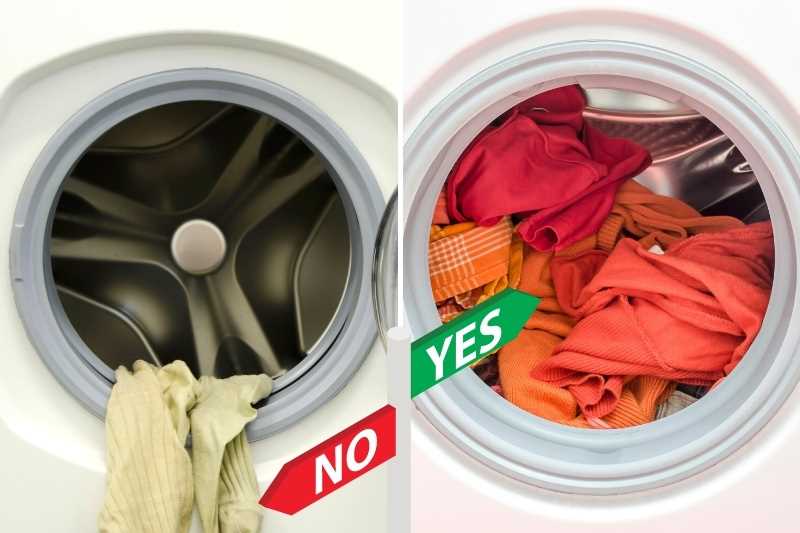
One of the easiest ways to save money when doing laundry is to switch to using cold water instead of hot water. Not only does this help reduce your energy bill, but it also has other benefits.
Why use cold water?

There are several reasons why using cold water is a good idea:
- Save energy: Heating water accounts for a significant portion of your washing machine’s energy usage. By using cold water, you can significantly reduce your energy consumption and lower your electricity bill.
- Preserve the quality of your clothes: Hot water can cause certain fabrics, such as delicate items or clothing with vibrant colors, to fade or shrink. By washing with cold water, you can help maintain the quality and longevity of your clothes.
- Environmentally friendly: Using cold water reduces your carbon footprint by using less energy. This helps to conserve natural resources and protect the environment.
Tips for washing with cold water

To maximize the effectiveness of washing with cold water, consider these tips:
- Pre-treat stains: Apply a stain remover or pre-treat stains before washing with cold water to ensure they come out as effectively as possible.
- Use the right detergent: Look for detergents specifically designed for cold water washing. These detergents are formulated to clean effectively in cooler temperatures.
- Adjust your washing machine settings: Some washing machines have special settings for cold water washes. Be sure to select the appropriate setting for maximum cleaning power.
- Sort your laundry: Separate your laundry into different loads based on color, fabric type, and level of dirtiness. This helps to prevent color bleeding and ensures optimal cleaning and care for your clothes.
By making the simple switch to washing with cold water, you can save money on your energy bills while still achieving clean and fresh laundry. Give it a try and see the difference it can make!
Benefits of washing laundry with cold water
Washing laundry with cold water offers a variety of benefits, from saving money to minimizing environmental impact. Here are some compelling reasons to consider switching to cold water for your laundry:
- Energy savings: One of the main advantages of washing laundry with cold water is the energy savings it provides. Heating water for laundry can account for a significant portion of your energy bill. By using cold water, you can reduce your energy consumption and save money in the long run.
- Prolonged garment lifespan: Hot water can cause clothes to shrink, fade, and wear out faster. By washing with cold water, you can help preserve the quality of your garments and extend their lifespan. This is especially important for delicate fabrics and items with vivid colors.
- Environmental impact: Washing laundry with cold water contributes to reducing greenhouse gas emissions. Since hot water requires energy to heat, using cold water helps to lower the overall carbon footprint associated with doing laundry.
- Preserves stain removal: Contrary to popular belief, cold water can be just as effective at removing stains as hot water. In fact, hot water can sometimes set certain stains, making them harder to remove. Cold water is gentler on fabrics and helps prevent stains from setting in.
- Saves time: Using cold water can save you time by eliminating the need to wait for the water to heat up. This can be especially beneficial if you have a busy schedule and need to do laundry quickly.
- Safe for most fabrics: Cold water is generally safe for most fabrics, including delicate items such as silk and lace. It helps prevent shrinkage, color fading, and damage to the fabric structure.
In summary, washing laundry with cold water not only helps you save money but also has a positive impact on the environment. It promotes garment longevity, aids in stain removal, saves time, and is safe for most fabrics. Consider making the switch to cold water for your laundry needs and enjoy the benefits it brings.
Air dry your clothes
Air drying your clothes is not only a great way to save money, but it also helps to extend the lifespan of your clothing items. Here are a few tips to help you air dry your clothes effectively:
- Choose a sunny spot: Find a spot in your home or outside where you can hang your clothes and take advantage of the sunlight. The heat from the sun will help to speed up the drying process.
- Invest in a drying rack: A drying rack is a convenient and space-saving tool that allows you to hang your clothes to dry. Look for a rack that can be easily folded and stored when not in use.
- Use hangers: Hanging your clothes on hangers instead of folding them will help to prevent creases and wrinkles. This method is especially great for drying shirts and dresses.
- Separate heavier items: If you have heavier items like jeans or towels, it’s best to hang them separately. This will prevent them from weighing down lighter items and causing them to stretch or lose their shape.
- Check the weather: Before you start air drying your clothes, make sure to check the weather forecast. Avoid hanging your clothes outside if it’s going to rain or if the humidity levels are high as it will take longer for them to dry.
- Rotate your clothes: To ensure that your clothes dry evenly, remember to rotate them occasionally while they are drying. This will help to avoid damp spots and promote faster drying.
By air drying your clothes, you can save on energy costs and also help to reduce your carbon footprint. Plus, your clothes will smell fresh and last longer!
Advantages of air drying your clothes
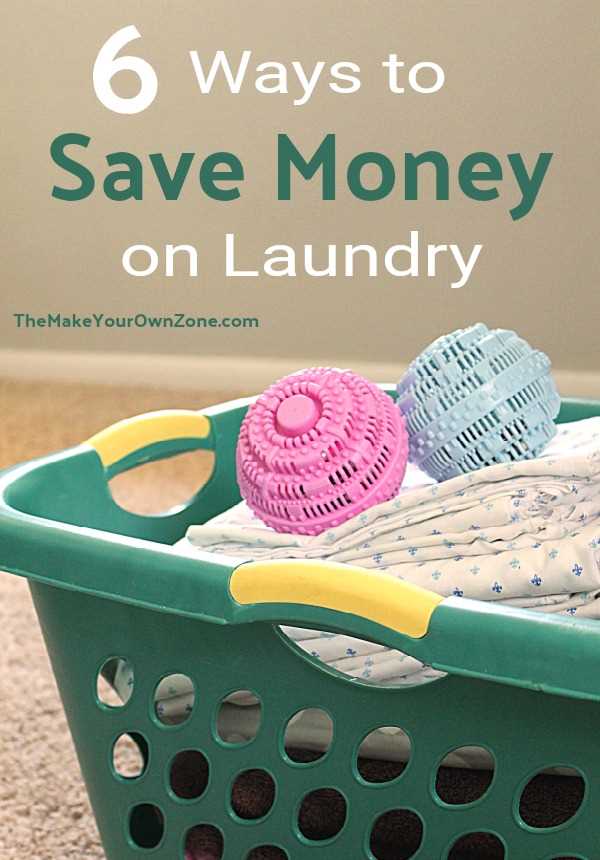
Air drying your clothes can have numerous benefits for your wallet, the environment, and the longevity of your clothing. Here are some advantages of air drying:
- Energy cost savings: By air drying your clothes, you can save money on your energy bills. Using a dryer consumes a significant amount of electricity, especially if you do multiple loads of laundry each week. Air drying eliminates this energy usage and helps to reduce your overall household expenses.
- Environmental impact: Clothes dryers emit greenhouse gases during their operation, contributing to climate change. By air drying your clothes, you can reduce your carbon footprint and help to protect the environment. It is a small step towards a more sustainable lifestyle.
- Longer garment lifespan: Dryers can be harsh on clothes, causing them to shrink, fade, or wear out faster. Air drying, on the other hand, is gentler and allows your clothes to retain their shape and color for longer. This can help extend the lifespan of your garments and save you money in the long run by reducing the need for frequent replacements.
- Reduced risk of fire: Dryers can be a fire hazard if not properly maintained. Lint build-up is a common cause of dryer fires. By air drying your clothes, you eliminate this risk completely, providing you with peace of mind and ensuring the safety of your home and loved ones.
- Preservation of special fabrics: Delicate fabrics, such as silk or cashmere, may not be suitable for machine drying. Air drying allows you to safely dry these special items without the risk of damage. It helps to preserve their quality, ensuring they last longer and remain in good condition.
- No static cling: Air-dried clothes are less likely to develop static cling compared to those dried in a machine. This can save you money on anti-static products like dryer sheets or fabric softeners.
Overall, air drying your clothes is a simple and effective way to save money, reduce your environmental impact, and prolong the lifespan of your clothing. Consider making the switch to air drying and reap the benefits!
Use a clothesline instead of a dryer
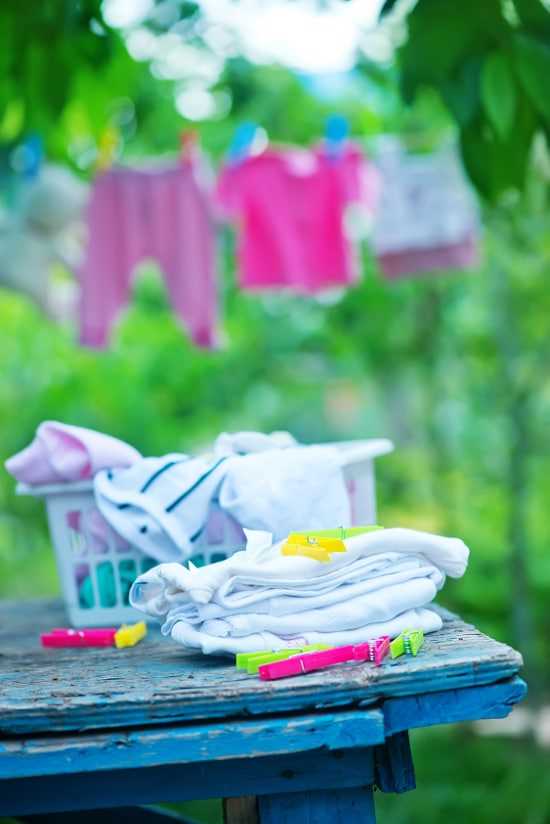
One of the easiest ways to save money on laundry is by ditching the dryer and opting for a clothesline instead. Not only will this save you money on your energy bill, but it will also help prolong the life of your clothes.
Here are a few reasons why you should consider using a clothesline:

- Save on energy costs: Dryers can be one of the biggest energy consumers in your home. By using a clothesline, you can save money on your monthly energy bill.
- Extend the life of your clothes: Dryers can be harsh on fabrics, causing them to wear out faster. Air drying your clothes on a clothesline can help them last longer.
- Enjoy fresh-smelling clothes: There’s nothing quite like the scent of clothes that have been dried in the fresh air. Your clothes will smell amazing without the need for fabric softeners or dryer sheets.
- Reduce your carbon footprint: By using a clothesline instead of a dryer, you’ll be reducing your reliance on electricity, which helps contribute to a cleaner environment.
- It’s easy and convenient: Setting up a clothesline can be as simple as attaching a rope between two trees or installing a retractable clothesline in your backyard. Once your clothes are on the line, they’ll naturally dry with minimal effort required from you.
So, why not give the clothesline a try? Not only will you save money, but you’ll also enjoy the benefits of fresh air-dried clothes and help reduce your environmental impact.
Reasons to opt for a clothesline

- Affordability: Using a clothesline to dry your laundry is a cost-effective alternative to using a dryer. By air drying your clothes, you can significantly reduce your energy consumption and save on your electricity bill.
- Environmental benefits: Air drying your clothes helps to reduce your carbon footprint. Ditching the dryer reduces greenhouse gas emissions and conserves energy, making it an eco-friendly choice.
- Preserving fabric quality: Tumble drying can cause wear and tear on your clothes, leading to fading, shrinking, and damage to delicate fabrics. Hanging your clothes on a clothesline helps to preserve their quality and extend their lifespan.
- Natural freshness: Clothes dried on a clothesline have a natural, fresh scent that cannot be replicated by a dryer. The fresh air and sunlight help to eliminate odors and leave your clothes smelling clean and revitalized.
- Easier on sensitive skin: Some people may have skin sensitivities or allergies to the fragrances or chemicals found in dryer sheets or fabric softeners. Air drying your laundry eliminates the need for these products, making it a healthier choice for individuals with sensitive skin.
- Additional space: If you have limited space in your home or apartment, using a clothesline can help free up valuable space that would be taken up by a dryer. This can be especially beneficial for small living quarters or those with no dedicated laundry room.
Wash full loads

One easy way to save money doing laundry is to always wash full loads. Instead of running the washing machine for just a few items, wait until you have enough clothes to make a full load. This not only saves water but also reduces electricity usage.
By washing full loads, you can optimize the resources used during the laundry process. This is especially important if you have a top-loading washing machine, as these tend to use more water than front-loading machines.
Washing full loads also means you can minimize the number of loads you do each week, which can save both time and money. Additionally, it helps to prevent wear and tear on your clothes, as they will experience less agitation from the washing process.
FAQ
What are some easy ways to save money doing laundry?
There are several easy ways to save money doing laundry. You can try using cold water instead of hot water, which can save on energy costs. You can also air dry your clothes instead of using a dryer, or use dryer balls to reduce drying time. Additionally, you can make your own laundry detergent, which is typically cheaper than buying commercial detergent. Finally, you can wash full loads of laundry to maximize efficiency and reduce water usage.
Is it really necessary to separate laundry by colors?
Separating laundry by colors is not necessarily required. While sorting laundry can help prevent color bleeding and fading, it is not always necessary. If you are washing new clothes for the first time, or if you are unsure about the colorfastness of a particular item, it may be wise to separate lights and darks. However, if you are confident in the quality and colorfastness of your clothes, you can save time by washing them all together.
How can I reduce my laundry expenses?
There are several ways to reduce your laundry expenses. You can start by using less detergent than recommended, as using too much can be wasteful and unnecessary. Additionally, you can try using vinegar as a fabric softener, which is a more cost-effective alternative. Another way to reduce expenses is to invest in high-quality, long-lasting clothing and linens, as they will require less frequent replacement. Finally, using a clothesline or drying rack instead of a dryer can significantly reduce energy costs.
Is it better to wash laundry in hot or cold water?
Washing laundry in cold water is generally better for saving money and energy. Hot water requires more energy to heat and can cause clothes to fade or shrink. Cold water is equally effective in cleaning most clothes, especially when used in combination with a good laundry detergent. However, there are some instances where hot water may be necessary, such as when washing heavily soiled items or when trying to remove stubborn stains.
Are there any alternatives to using a clothes dryer?
Yes, there are several alternatives to using a clothes dryer. You can hang your clothes on a clothesline or drying rack to air dry them. This not only saves money on energy costs, but it can also extend the lifespan of your clothes, as dryers can be harsh on fabrics. Another alternative is using dryer balls, which help to reduce drying time and soften clothes without the need for a dryer. Lastly, you can also use an iron to remove wrinkles and further dry your clothes after air drying.
What are some easy ways to save money on laundry?
There are several easy ways to save money on laundry. First, try washing your clothes in cold water instead of hot water. This can save energy and reduce your utility bill. Second, air dry your clothes instead of using a dryer. This can also save energy and help your clothes last longer. Third, use detergent and fabric softener sparingly. You don’t need to use a lot for your clothes to get clean. Fourth, consider using a laundry ball or wool dryer balls instead of dryer sheets. These can help reduce static and soften clothes without the need for disposable sheets. Fifth, only do full loads of laundry. Running a half-empty washer or dryer wastes water and energy. Finally, consider using a high-efficiency washer and dryer. These units use less water and energy, which can translate into savings on your utility bill.






